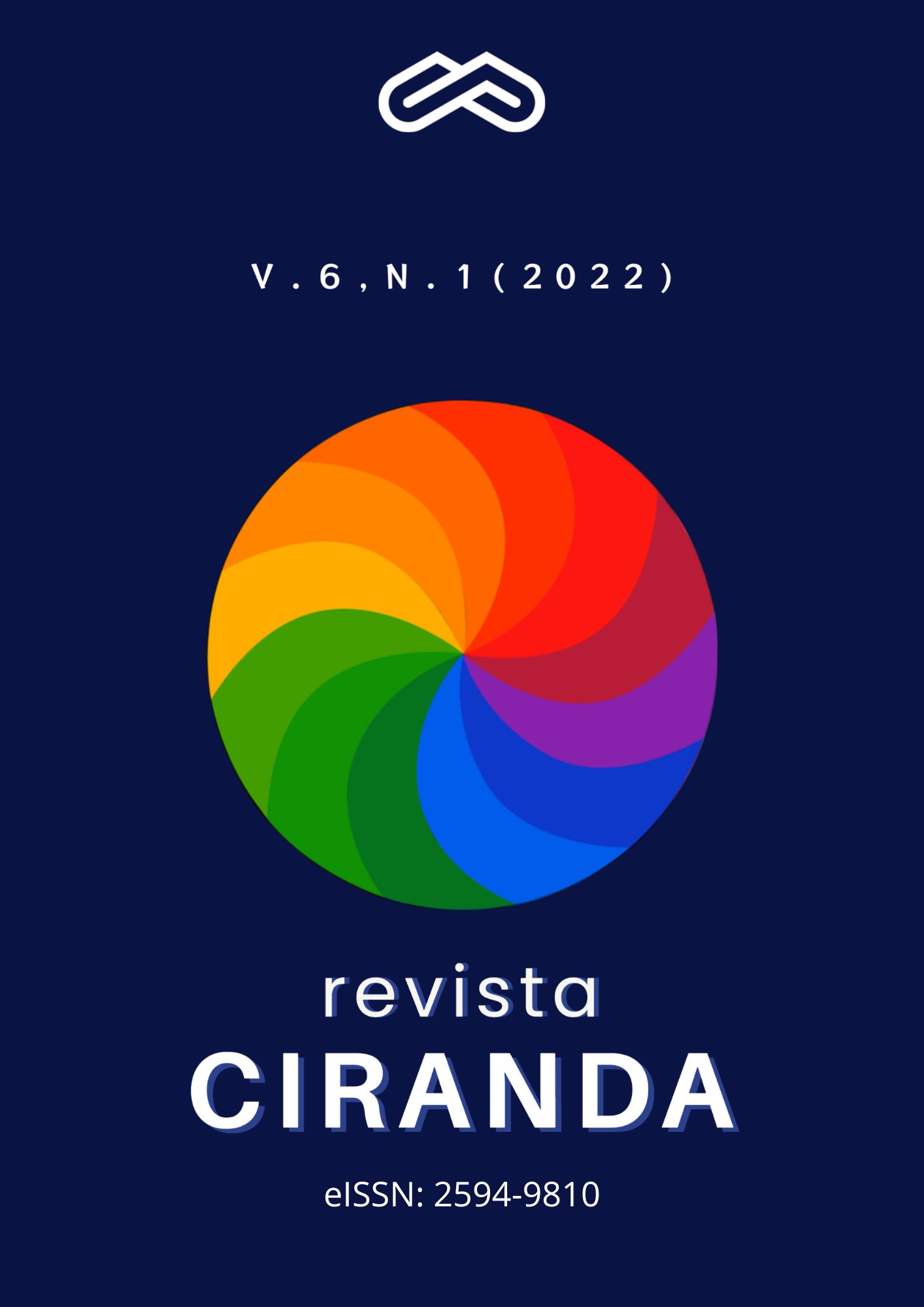DEVELOPMENT OF DIGITAL DIDACTIC MATERIAL TO SUPPORT THE TEACHING OF INTRODUCTORY ACCOUNTING IN PROFESSIONAL AND TECHNOLOGICAL EDUCATION
DOI:
10.46551/259498102022007Keywords:
Accounting Education. Digital Didactic Material. Introductory AccountingAbstract
This article is a part of the Master's research, which was developed in the research line "Innovation for
EPT", of the Graduate Program in Professional and Technological Education (CTISM/UFSM), and
presents as a general objective to develop digital teaching materials (DTM) to support the teaching
practices of teachers of the subject Introductory Accounting. This objective is justified by the fact that
Accounting is an area of education with scarce digital teaching materials for use by teachers in their
teaching practices. The authors who supported this study were: Andrade (2015); Peleias (2006, 2007);
Felder-Silvermann (1988, 2002); Amiel (2018), Filatro (2018), among others. An applied research was
chosen, since it is a study with the purpose of solving problems identified in the scope of the
researcher's experience. As a result, a website was developed, called "REA_CONT", free and open
access, which brings together a collection of activities and varied content, which will serve as support
for teachers, as well as the site also provides tutorials for teachers to develop their own teaching
materials and have an initial path to support themselves. The site was evaluated qualitatively by
teachers and students from higher and technical education, and the data collected served to attest that
the research achieved the proposed objective. Furthermore, it contributes to the teachers' teaching
practices and to the students' study and revision of content. The work will be continued, expanding the
development of materials for areas other than Introductory Accounting.
Downloads
References
ALECRIM, E. O que é Creative Commons? 2017. Disponível em:
<https://www.infowester.com/creativecommons.php.>. Acesso em: 25 jan. 2021.
AMIEL, T.; GONSALES, P.; & SEBRIAM, D. Recursos Educacionais Abertos do Brasil: 10
Anos de Ativismo. EmRede - Revista De Educação a Distância. Brasília. v. 5, n. 2, p.
-258, 2018.
ANDRADE, J. P.; SANTOS, J. C.; FILHO, J. M. dos S. Aspectos da História do Curso
Comercial no Brasil. In: 8º Encontro Internacional de Formação de Professores e 9º
Fórum Permanente de Inovação Educacional. Aracaju. v. 8, n. 1, 2015.
FALKEMBACH, G. M. Concepção e desenvolvimento de material Educativo digital -
CINTED-UFRGS Novas Tecnologias na Educação. v. 3, n. 1, p.inicial-p.final, 2005.
Disponível em:
<http://www.cinted.ufrgs.br/renote/maio2005/artigos/a23_materialeducativo.pdf>. Acesso
em: 15 abr. 2020.
FILATRO, A. Como preparar conteúdos para EAD: guia rápido para professores e
especialistas em educação a distância, presencial e corporativa. 1ª Ed. São Paulo: Saraiva,
FRANCISCO, T. M. M.; MARTINS L. P. A utilização das Tecnologias de Informação e
Comunicação no exercício da profissão do Contabilista: evolução, tendências e desafios.
In: XVII Congresso Internacional de Contabilidade e Auditoria, 2019, Porto, Portugal. Anais do
XVII Congresso Internacional de Contabilidade e Auditoria, 2019.
FELDER, R. M. et al. Learning and teaching styles in engineering education. Engineering
education, v. 78, n. 7, p. 674-681, 1988.
FELDER, R. Home Page. 2002. Disponível em:
<http://www2.ncsu.edu/unity/lockers/users/f/felder/public/RMF.html>. Acesso em: 02 nov.
GIL, A. C. Didática do ensino superior. São Paulo: Atlas, 2006.
GIL, A. C. Métodos e técnicas em pesquisa social. 7. ed. São Paulo: Atlas, 2019.
MARION, J. C.; SANTOS, A.C. M. - Contabilidade básica – E-book. 12. ed. – São Paulo:
Atlas, 2018.
OKADA, A. et al. Coaprendizagem através de REA em Redes Sociais. In: OKADA, A.
(Org.). Recursos Educacionais Abertos & Redes Sociais. São Luis: Editora UEMA, cap.
, p. 164-175, 2013.
RIBEIRO, O. M. Contabilidade Básica Fácil, 29º Ed – São Paulo: Saraiva, 2017.
UNESCO. Open Educational Resources. Disponível em:
<http://www.unesco.org/new/en/communication-and-information/access-toknowledge/open-e
ducational-resources/global-oer-logo/>. Acesso em: 14 ago. 2020.




.png)



